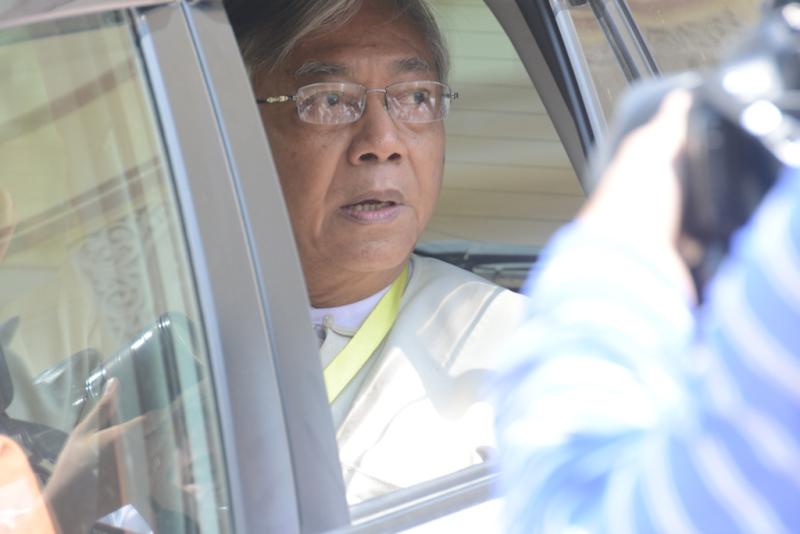*Ethnic Rebels Hail New President, Hope for Peace Process Success

YANGON (Myanmar Now) – Ethnic leaders and armed group representatives have welcomed last week’s appointment of Htin Kyaw as president of the National League for Democracy government, with some voicing confidence in his government’s abilities to revive Myanmar’s stalled peace process.
“Although Aung San Suu Kyi is not the president, she will be able to work harmoniously with the president. So I believe the democratic reform process will be successful,” said Khun Okka, a colonel of the Pa-O Liberation Army and joint-secretary of the United Nationalities Federal Council, an alliance of ethnic armed groups.
Dawng Kha, spokesperson for the Kachin Independence Army, said, “The election of Htin Kyaw signals the strength of the NLD government and its ability to implement plans for a better country.”
Manam Tu Ja, chairman of Kachin State Democracy Party, which has four seats in the Kachin State parliament and one in the national parliament, said the NLD had made a good decision in selecting Htin Kyaw.
“The NLD has made the best choice since Daw Aung San Suu Khyi cannot become president, though she should be. Its decision to choose the Chin ethnic Henry Van Thio (as vice-president) also shows its pays attention to ethnic peoples,” he said.
On March 15, Myanmar’s bicameral parliament voted to elect Htin Kyaw, a loyal aid of Suu Kyi, to become president in her stead, as the 2008 Constitution blocks her presidency because her sons are British nationals. The army-drafted charter is also a stumbling block on the road to creation of a federal union, as it gives the central government extensive control over ethnic states.
The NLD government will now need to work with the powerful army and ethnic rebels to negotiate a nationwide ceasefire that includes all rebel groups, before trying to amend the Constitution in order to devolve power to the states.
Khaing Thukha, a spokesperson for the United League of Arakan, said he hoped the first democratically elected government in decades would make steps to start a dialogue with ethnic minorities over their long-standing demands for the creation of a federal union.
“Equality is what we want to see under the new government. If all the new leaders work in genuine spirit and goodwill towards striving for equality and genuine federal union, then we would see some progress,” said Khaing Thukha.
His organisation is the political wing of the Arakan Army, a rebel group that was not recognised by the government during ceasefire talks and has clashed with the army in western Rakhine and Chin states.
“We want to see the new president implement the desires of the public,” added Mai Aik Kyaw, spokesperson of Ta’ang National Liberation Army (TNLA).
Its ethnic Ta’ang (Palaung) rebel forces have clashed with the Shan State Army-South for several weeks now over who controls parts of northern Shan State and the fighting has displaced thousands of civilians.
The Shan State Army-South and seven other rebel groups signed a joint ceasefire with the government in September. The Shan rebels are now reportedly receiving support from the military for its operations against the TNLA.
Pado Mann Nyein Maung, from the Karen National Union, which also signed the joint ceasefire, said it was too early to judge how the NLD government would approach ethnic issues and the peace process.
“Daw Suu has said she’d like to implement an all-inclusive ceasefire. We have to wait and see how that works and how she’s going to be ‘above the president’,” he said, referring to Suu Kyi’s plan to control the president and government.
“The incoming government is now responsible for persuading the remaining groups to join,” Pado Mann Nyein Maung said.
*This article first appeared on Myanmar Now on 22 March 2016.




